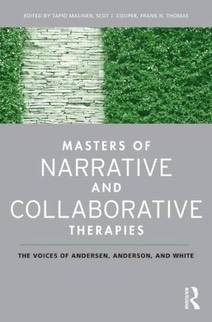While there are many kinds of take-home documents that we co-create at the walk-in, one of my favourites has been the ‘break-up’ letter.
Break up Letters
The person is invited into co-crafting this kind of documentation following an externalizing conversation (White & Epston, 1990). Externalizing conversations implicitly discuss the person as in relationship with the Problem (antagonist) rather then locating the Problem in the person. Separate from the problem but in relationship implies that the relationship can be ongoing and yet adjusted, revised, or ended. This conversation invites forward personal agency (the idea that the person consulting to us can do something) as they outline actions to take to alter their relationship. The process of crafting the letter in itself is taking immediate action to begin to alter the relationship, render it more visible and available for scrutiny. That is an agency enhancing activity. Here is an anatomy of these letters. Letters can be reviewed when needed and shared as a means to extend the conversation endurance and innoculate against a problematic master narrative.
- Address the letter to the problem
- “Dear Depression”
- “Dearest Worry”
- “Hello Sticky Thinking”
- “Self-hate I have something I want to say to you”
- “Dear Mother Blame”
- Note how hard/easy it might be to break up with the problem.
- “This is not easy for me to write but…”
- “I am so excited to get rid of you…”
- “I should have done this long ago…”
- “This is so hard to say but it’s for the better of us both.”
- “I’m bouncing and not looking back…”
- Outline the problems intentions, treatment, and strategies it uses to affect the life of the protagonist. This is revealed through exploration of White’s Statement of Position Map 1 (White & Epston 1990, White, 2007).
- “I am sick and tired of your lies to try to get me to (think/feel/ act)…”
- “Being with you is ruining my life…”
- “I hate the way you try to …”
- “At your worst you…”
- Highlight the turning point in the relationship in which the subject begins to see through, suspect, gain a clearer perspective on the problem and what the current relationship with the problem is doing to their life. Note it is the current relationship with the problem that is problematic not the problem itself. Some problems may come be usefulness in acting as a reminder of intolerable situations, as a warning bell, or be useful in certain situations. We don’t want to necessarily erase the problem but rather shift the relationship or domination of the problem.
- “However, as I look at our relationship I am clear that you must go.”
- “Now I am seeing through your lies…”
- “Although it pains me I want to take my life in a different direction.’
- “Although it is scary and entering some unknown I am …”
- Highlight the ideas, strategies, ways, etc. that the person plans to adjust the relationship with the problem. (Exploration of Map 2)
- “So I am ending this relationship by:…”
- “I will be okay because I know that I am…”
- I’m making this happen, like it or not by:…”
- Can state what the person might miss about the relationship, memories they’ll keep with them, or what they have learned from it that they will keep with them. We want to guard against totalizing problems though. As in any relationship whether it has been toxic, hot or cold there are times when the relationship was perhaps useful in some way. This may include a situation in which a problem assisted a person to keep themselves safe in the face of assault or lessoned the effects of trauma. These kinds of problems may take the form of what authorities may call depression, worry, dis-association, avoidance. Although those problems served a purpose in a certain time in certain situations they may no longer be necessary as people move their lives towards preferences or are no longer in the threatening, assaultive context. For this reason it can be useful to acknowledge the usefulness of the problem in the past and then highlight how it has been outgrown or is no longer working for the person given their more recent circumstances.
- “Even though I know this is the best thing for me I’ll miss…”
- “I’ll always remember how you helped me out of those tough times but we have outgrown each other.”
- “I’ve learned from our time together that…”
- This relationship has taught me…”
- I will miss how you kept me company when…”
- Highlight the benefits of this breakup for the person. This is wild speculation of a life less dominated by the relationship with the problem. You can speculate about the difference in significant domains of life- social, family, education, work, community.
- “I know this will make my life more…”
- “Being freer of our relationship will help me to…”
- “As I move on I can’t wait to…”
- “It’s exciting to know that one day I’ll be able to…”
Once we are finished co-crafting the letter copies are made and we discuss when would it be useful to consult the letter and make some predictions about what difference it will make to review it at a later time. Hope this is useful
Scot
References:
White, M. & Epston, D. (1990). Narrative means to therapeutic ends. New York: W.W. Norton and Co.
White, M. 2007: Maps Of Narrative Practice. New York: W.W. Norton.

